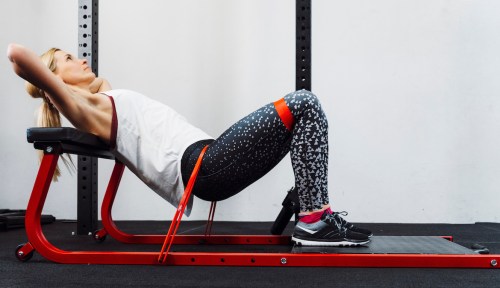The U.S. Supreme Court agreed Monday to hear arguments in a case from Mississippi that could roll back abortion rights protections established by 1973’s landmark ruling in Roe v. Wade. This will be the first abortion-related case to come before the court since Justice Amy Coney Barrett joined former President Trump’s other conservative Supreme Court appointees, Neil Gorsuch and Brett Kavanaugh, on the bench.
Experts in This Article
Rachel Fey is the senior director of public policy at Power to Decide, where she leads the organization’s federal health policy and advocacy portfolio.
“Today, the Supreme Court granted review of a case from Mississippi which is a direct challenge to Roe v. Wade and a direct challenge to literally almost 50 years of Supreme Court precedent,” Nancy Northrup, president and CEO of the Center for Reproductive Rights, said Monday in a press release. “Indeed, Mississippi passed this law as a test case to overturn Roe, so alarm bells should be going off for the 70 percent of people in the United States who want to make sure that access to abortion remains safe and legal.”
The case in question is Dobbs v. Jackson Women’s Health Organization, 19-1392. It centers on a Mississippi law passed in 2018 barring abortions after 15 weeks past conception, with the exception of medical emergencies or rare fetal abnormalities. The law goes against existing Supreme Court precedent disallowing states from banning abortions prior to “fetal viability” (the point at which a fetus has a chance at surviving outside the womb) at around 24 weeks. The law was blocked by the 5th U.S. Circuit of Appeals after it was challenged by Mississippi-based abortion clinic Jackson Women’s Health Organization.
Mississippi is now appealing to the Supreme Court to rethink the viability standard and uphold its law. “It is well past time for the Court to revisit the wisdom of the viability bright-line rule,” wrote Mississippi Attorney General Lynn Fitch in a court filing.
Arguments on the case will be heard in the Supreme Court’s next term, beginning in October, and a decision is not expected until the spring or summer of 2022. According to Rachel Fey, Vice President, Policy & Strategic Partnerships at Power to Decide, if the Mississippi law were to be upheld by the Supreme Court, it would be a huge blow to Roe v. Wade, one which could result in 24 states banning abortion outright. “Ten of those states already have trigger bans in place, which would ban abortion immediately if Roe v. Wade were overturned,” says Fey.
The Supreme Court cannot uphold this law in Mississippi without overturning Roe v. Wade‘s core holding that every pregnant person has the right to decide whether to continue their pregnancy prior to viability, said Northrup. “The stakes here are extraordinarily high,” she added.
That the Supreme Court has even agreed to take this case is significant and alarming. According to Northrup, it’s the first abortion ban case that the Supreme Court will hear since Roe v. Wade. “They have heard various cases over the years on different issues but never before an abortion ban case,” she said. “The court has previously refused again and again to review these kinds of laws because they are clearly unconstitutional and in violation of 50 years of precedent.”
Mississippi’s law, however, is just one of many abortion rights challenges popping up in states across the country as anti-abortion lawmakers aim to take advantage of the majority conservative Supreme Court to rollback abortion rights. Earlier this year, South Carolina passed a law effectively barring abortions after six weeks past conception, though that law has been temporarily blocked from going into effect by federal courts. And last summer, the Supreme Court heard arguments surrounding a Louisiana case which would have forced two of the state’s three remaining abortion providers to close. The court ruled against the law; however, both Justice Gorsuch and Justice Kavanaugh dissented from that opinion. Justice Barrett had not yet been appointed.
Fey notes that access to abortion care is already restricted in some states despite Roe v. Wade‘s current standing. “There are so many other attacks out there—like the Hyde Amendment, which bans Medicaid coverage of abortion care and therefore puts abortion care out of reach for many low income women, a disproportionate number of whom are black and brown women,” says Fey. “We also know that there are attempts to put any number of medically-unnecessary restrictions on abortion care, and all of these things serve to make Roe v. Wade a right in name only for the people who are impacted by those barriers.”
Now, on top of those roundabout barriers, the Mississippi case has added a head-on challenge to Roe v. Wade as it has stood for 50 years, says Fey. “That should concern absolutely everyone in this country,” she adds.
And while abortion rights advocates can’t stop this case from being heard, there are actions to take if you want to do help protect abortion access. The Women’s Health Protection Act will be reintroduced in Congress soon, according to Fey and Northrup, and it would establish a statutory right to abortion that the Supreme Court could not impact one way or the other. In other words, it would protect against bans like Mississippi’s and prevent states from enacting other unnecessary restrictions. So, if you support the constitutional right to abortion, you can reach out to your representatives in Congress to urge support for the act. “The other thing that’s important to know is obviously a lot of these challenges are coming from state laws,” says Fey. “It’s important to engage with your state’s elected legislators on the importance of access to abortion care.”
If you need to speak with a health-care professional, please contact your nearest Planned Parenthood (even if it’s in a different state) or call 1-800-230-7526.
Sign Up for Our Daily Newsletter
Get all the latest in wellness, trends, food, fitness, beauty, and more delivered right to your inbox.
Got it, you've been added to our email list.










